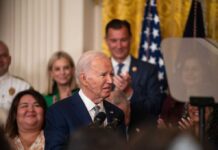
Two federal appeals courts have recently made conflicting decisions about the extent to which schools can restrict student speech, setting the stage for a potential Supreme Court showdown. The 1st U.S. Circuit Court of Appeals ruled that Middleborough Public Schools did not violate student Liam Morrison’s rights by banning shirts that state there are “only two genders.” This decision contrasts sharply with an 8th Circuit ruling last October, which struck down a similar restriction in an Iowa school district.
In the Massachusetts case, the court emphasized the 1969 Supreme Court precedent from Tinker v. Des Moines, which allowed students to wear antiwar armbands. However, the 1st Circuit argued that expressions demeaning characteristics of personal identity, such as gender, are not protected, even if presented passively. This interpretation gives schools in several states broad authority to censor such viewpoints, citing potential disruptions.
Morrison, who faced punishment for his shirt, has his case represented by the Massachusetts Family Institute and the Alliance Defending Freedom (ADF). ADF’s spokesperson highlighted the threat to free speech, emphasizing that the school’s promotion of its gender views through events and posters should allow opposing views to be expressed as well. They are considering appealing the decision to the Supreme Court.
On the other hand, the 8th Circuit ruled in favor of student speech, blocking an Iowa school’s policy that mandated respecting peers’ gender identities. The court found that merely offensive speech does not justify suppression under Tinker.
The contrasting decisions reflect deep divisions on how far schools can go in regulating speech related to personal identity. The ADF argues that these issues need clarity from the highest court, given the fundamental rights at stake and the varying interpretations across different circuits.














